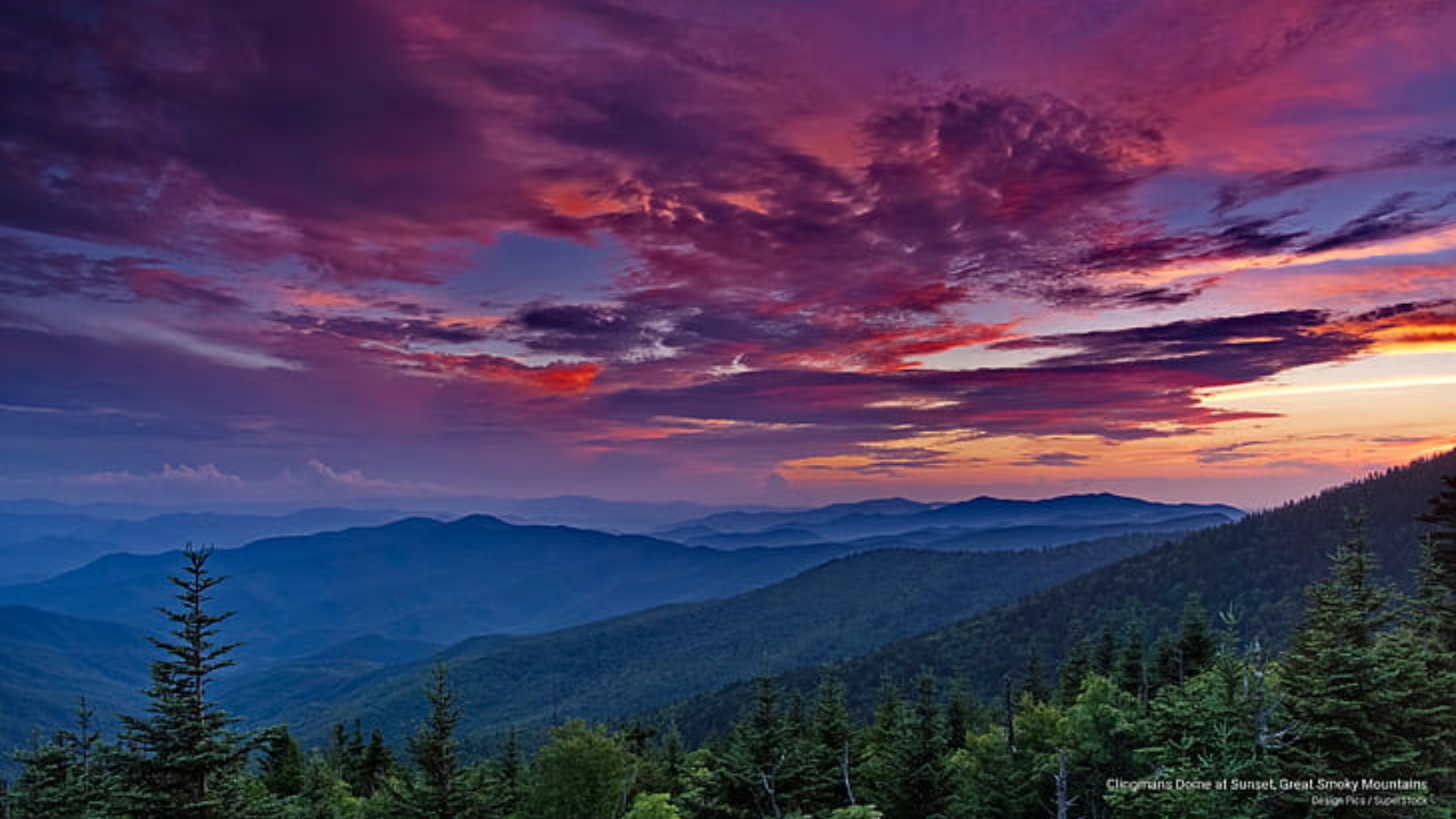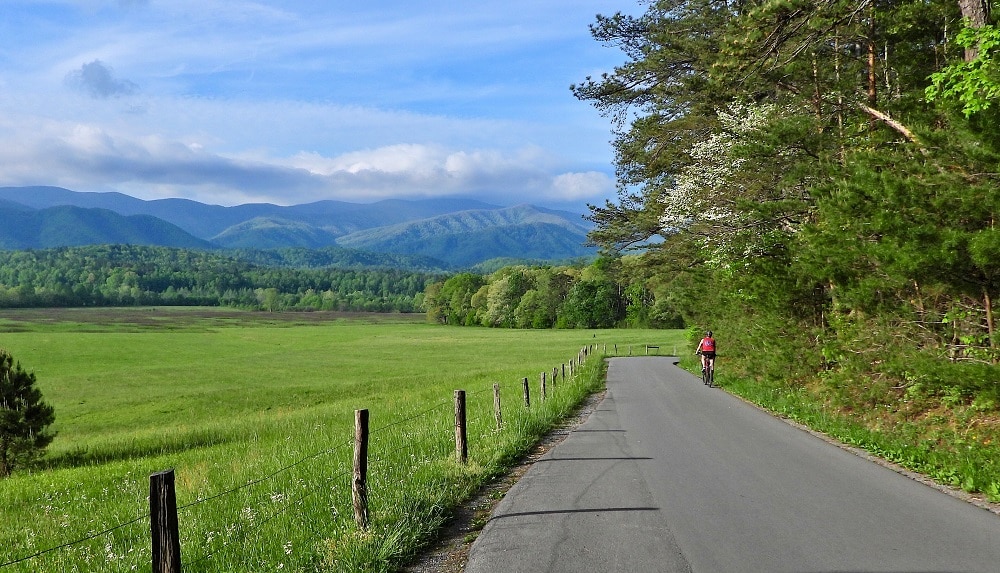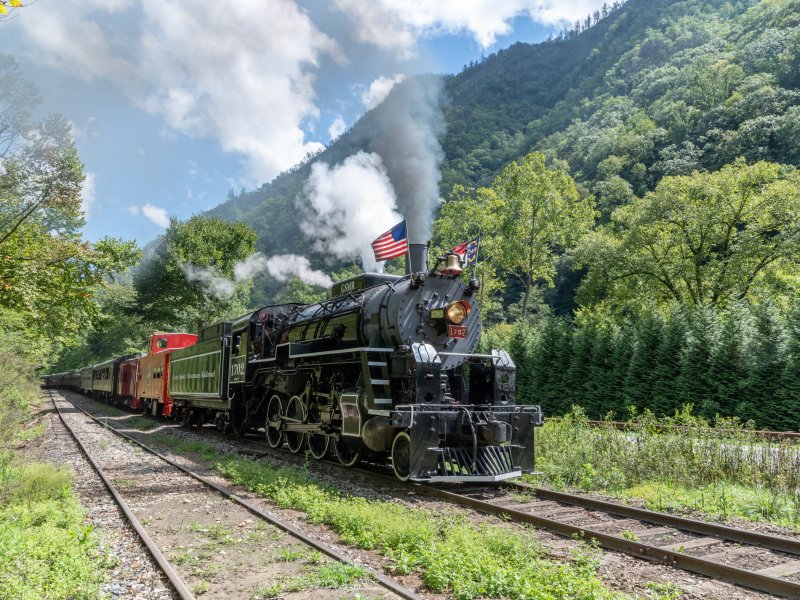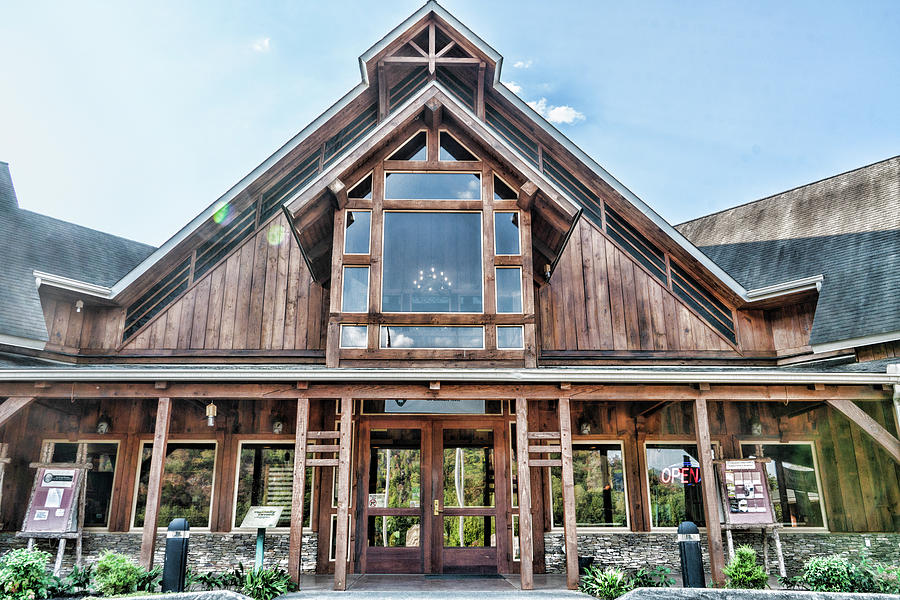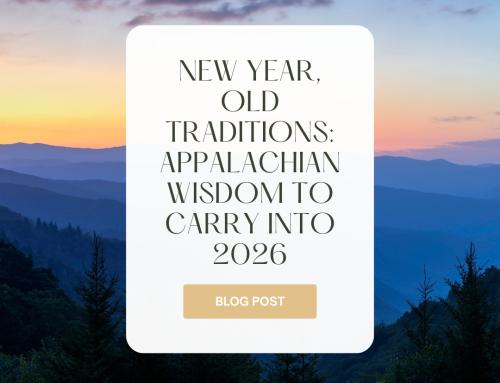Summer Adventures in the Great Smoky Mountains 🌿
Summer brings the Great Smoky Mountains to vibrant life—lush forests, wildflowers, rushing rivers, and endless daylight mean more time to explore. From outdoor thrills to serene escapes, here are top things to do for an unforgettable summer getaway.
1. Hit the Trails
With over 850 miles of hiking trails, the Smokies cater to every level—from gentle strolls to adventurous day-long treks. Must-hikes include:
- Laurel Falls: a family-friendly paved trail leading to a scenic waterfall.
-
Laurel Falls is perhaps the most beloved and accessible hike in the Smokies. This 2.6-mile round‑trip trail is paved for approximately the first half, traversing a lush hardwood forest rich with mountain laurel and rhododendron before culminating at a dramatic, 80‑foot waterfall that’s split by a footbridge
-
Difficulty: Easy to moderate due to the gentle elevation gain (~314 ft).
-
Trail Highlights: Old-growth forest beyond the falls, and a historic summit trail that continues past Cove Mountain Fire Tower.
-
Tips: Ideal for families, but watch for steep drop-offs near the falls and bring caution around slippery bridge areas.
-
Current updates: NPS plans 18-month trail improvements starting early 2025 to enhance width, safety, viewing areas, and parking
-
-
- Andrews Bald: wildflower meadows and sweeping vistas.
-
This serene summit is one of only two grassy balds in the park. Located along the Forney Ridge Trail, Andrews Bald sits at 5,920 ft, higher than Gregory Bald.
-
Trail length: Approximately 1.8 miles one‑way from Clingmans Dome parking.
-
What to expect: Sweeping grassy meadows dotted with flame azaleas, rhododendron, blackberries, raspberries, Fraser firs, and bluets – especially vibrant in early July. (https://www.nps.gov/places/andrews-bald.htm)
-
Scenery: Panoramic views atop the bald, plus opportunities for sunrise or sunset treks .
-
Accessibility: Moderate hike with moderate elevation gain, suitable for families used to mountain terrain.
-
-
- Art Loeb Trail: rugged terrain and gorgeous overlooks.
-
Situated within Pisgah National Forest west of the Smokies, the Art Loeb Trail is one of Western North Carolina’s most challenging treks:
-
Total length: 30 miles one-way, crossing several peaks over 6,000 ft, including Maine Ridge, Shining Rock, and Black Balsam Knob.
-
Terrain: Rugged and technical, with rocky ridgelines and steep grades. Expect ~10,000 ft of elevation change.
-
Sights: Epic panoramic overlooks, diverse ecosystems, ridgelines and dense forest sections.
-
Ideal for: Experienced hikers and backpackers; day hikers can tackle sections, such as Gloucester Gap to Davidson River, for a challenging loop.
-
-
- Cades Cove: gentle loop with both trail and road hiking options.
-
Less of a trail hike and more a scenic outdoor experience, the Cades Cove Loop is popular for cyclists, walkers, and motorists.
-
Route: An 11‑mile one‑way paved loop around the valley floor
-
Time needed: Typically a 2–4 hour leisurely tour, with stops for wildlife viewing, historic churches, and old cabins
-
Vehicle‑free days: Wednesdays (mid‑May to late Sept.) are reserved vehicle‑free for pedestrians and cyclists
-
Trails available: Numerous side hikes—like Abrams Falls (~5 mi round trip)—are accessible from loop pull‑offs, ideal for warm-weather waterfall exploration
-
-
Wildflowers carpet trails in summer, and wildlife sightings are common in open valleys like Cades Cove (visitmysmokies.com, visithaywood.com, wildlandtrekking.com).
2. Drive Scenic Byways
Enjoy an easy flow through the park’s natural beauty:
- Cades Cove Loop Road: an 11-mile one-way paved route ideal for wildlife watching—look for deer, black bears, and historic cabins.
-
Wildlife Viewing: Whites‑tailed deer are a constant presence along the road, while black bears, turkeys, raccoons, and coyotes also make appearances—especially in the early morning or late evening when traffic is lighter.
-
Historic Buildings: Pull‑offs lead to over a dozen 19th‑century structures, including cabins, barns, churches, and a working grist mill. The orientation shelter at the loop’s start provides maps and expert advice from rangers.
-
Traffic‑free Wednesdays: From May through September, vehicles are restricted on certain Wednesdays, allowing cyclists and pedestrians exclusive access.
-
Scenic Overlooks & Hikes: Numerous pull‑outs offer vistas and photo ops, while trailheads like Abrams Falls (a 5‑mile round trip) provide waterfall access
-
- Blue Ridge Parkway: connecting the Smokies to the farther-appart, this iconic road features overlooks like Jump Off Rock, Mount Pisgah, and Doughton Park.
-
Jump Off Rock (milepost ~260.6): Just a short walk from the roadside parking, this overlook delivers panoramic views of Blue Ridge and Pisgah Mountains—and on clear days, you might spot all the way into Tennessee, Georgia, and South Carolina.
-
Mount Pisgah & Doughton Park (mileposts 238–244): Doughton Park is a sprawling picnic and camping hub tucked among meadows and forest. It even features “The Bluffs” restaurant and visitor center. Trails of varying lengths traverse the area.
-
Cultural Stops: Milepost 218 features Fox Hunters Paradise, while Cumberland Knob and Brinegar Cabin (milepost 238.5) offer insights into historic mountain life
-
- Foothills Parkway: offers elevated views of western Smokies and valley landscapes.
-
Western Stretch (33 miles): Partially finished since the 1960s, this section boasts multiple overlooking points both north (Tennessee Valley) and south (Smokies), including Look Rock—a 2,650-foot summit featuring a tower and half‑mile trail.
-
Capshaw Branch & Emerine Gap: Highlights in the corridor, complete with picnic areas and observation platforms—literally roadside gems where you can hike less than a mile for better views.
-
Quieter Option: It sees much less traffic than the Parkway or the Cove, offering a tranquil backdrop framed by Smokies, Cumberland Mountains, and seasonal foliage.
-
3. Cool Off in Water
When summer temps climb in the Great Smoky Mountains, nothing beats a dip in cool mountain waters. Here’s how you can stay refreshed and enjoy some of the region’s best summer spots:
Sunburst Swimming Hole (Pigeon River, Haywood County)
- Location: Right off Highway 215, just past Sunburst Campground on the way to Lake Logan (blog.trekaroo.com, visithaywood.com).
- Water: Crystal-clear, spring-fed river with upper and lower swim areas. Depths range from shallow wading to over 6 feet.
- Amenities: Roadside parking, rocky “beach” spots for picnic setups, and jumping boulders with a rope swing .
- Best For: Families, friends, and anyone who wants a fun, accessible place to cool off.
Tips:
- Arrive early on weekends—spots fill quickly.
- Check current conditions—access may be restricted after heavy rain or storms.
- Be cautious jumping; check water depth before leaping.
Waterfall & Stream Misting
Cooling off doesn’t always mean swimming—sometimes a hike along a river or near a waterfall is enough to refresh.
- Stroll the Laurel Falls Trail for periodic mist from the 80-foot falls above the paved walk.
- Try hikes to waterfall trails like Grotto Falls or the “Second Falls” at Graveyard Fields—popular for their natural spray.
- Follow streams alongside trails like Deep Creek or Wesser Fire Tower—shaded creek corridors stay cool even in heat.
Tips:
- Wear quick-dry clothing and bring a microfiber towel or poncho.
- Start hikes early when humidity is lower and temps are more manageable.
- Pack plenty of water; even cooling trails need hydration breaks.
Other Top Water Cool‑Off Spots in Haywood County
- Midnight Hole (Big Creek): Around a 1.5-mile hike to a deep swimming pool and small waterfall—great for rock jumping.
- Graveyard Fields & Skinny Dip Falls: Both areas on the Blue Ridge Parkway feature waterfall trails with plunge pools perfect for wading and cooling.
Summer Heat Hacks
- Start early – Cooler mornings, fewer crowds, more shade .
- Elevate your adventure – Higher elevation hikes are 10–20°F cooler.
- Seek shade – Trails near water stay cooler than exposed paths.
- Dress right – Light-colored, breathable clothing and sun protection make all the difference.
- Hydrate and snack smart – Cold drinks and snacks help beat the heat between swims or hikes.
By taking a dip at Sunburst, misting under waterfalls, or strolling along shaded creek paths—while following these simple safety and comfort tips—you’ll stay cool and refreshed during your summer getaway in the Smokies.
4. On-the-Water Adventures
When summer arrives in the Smokies, hitting the water is one of the absolute best ways to beat the heat and soak in the scenery. Here’s a deeper look at two popular paddling adventures:
🌊 Kayaking & Rafting on the Ocoee River
The Ocoee River, located just outside the Smoky Mountains in Tennessee, is renowned for thrilling Class III–IV whitewater rapids. With nearly 10 miles of rafting and kayaking options—including the iconic Olympic slalom course—it’s a top destination for adrenaline seekers (ocoee.whitewaterexpress.com, ocoeerafting.com).
- Upper Section: Home to the Olympic-era course featuring intense drops like “Humongous” and “Powerhouse.” Best suited for experienced paddlers or fully guided trips .
- Middle Section: A slightly gentler yet still exhilarating ride through continuous Class III–IV rapids such as Table Saw and Broken Nose. Guided float options available for ages 12+.
- Full-Day Combo Trips: Combine both sections for 8–10 miles of whitewater plus a riverside picnic lunch—great for making the most of your day on the river.
🔹 Top Tips:
- Book in advance, especially on summer weekends—this is one of TN’s most popular water adventures.
- Rentals include gear—paddles, PFDs, helmets, wetsuits. Expect to get soaked!
- Minimum age around 12; great for adventurous teens.
- Consider a guided inflatable kayak “ducky” trip if you’re new to paddle sports .
🛶 Canoeing & Paddleboarding in Bryson City & Around
Prefer something calmer? Near the North Carolina side of the Smokies, Bryson City and Fontana Lake offer mellow water fun:
- Fontana Lake: Ideal for self-guided kayak, canoe, or SUP rentals. Paddle past islands, listen for waterfalls, and keep an eye out for wildlife like kingfishers and otters.
- Tuckasegee River (Bryson City): Offers gentle flows perfect for paddleboarding and canoeing. Bring your own gear or rent locally.
- Nantahala Outdoor Center (NOC): Offers tandem and single kayaks or SUPs on Fontana Lake, with guided and self-guided options suitable for all ages (minimum age 4+).
- Bryson City Island Park: A small paddling hotspot full of slaloms and tranquil creek scenery—great for relaxing floats and informal exploration.
🔹 Best Practices for Summer Cool-Down:
- Arrive early to beat the heat and catch calm water.
- Bring water shoes—most rental crafts are sit-on-top and can get slippery.
- Wear a personal floatation device (PFD)—required for all paddlers.
- Pack lightly with a dry bag for snacks, sunscreen, and your phone.
- Know your limits—stick with calm water if you’re not used to strong currents or deeper lakes.
Whether you crave a heart-pounding whitewater rush or a serene glide across still waters, the Smokies region offers it all. Raft the legendary Ocoee River for a day of adventure, or unwind with a peaceful paddle on the Tuckasegee or Fontana Lake. Either way, cooling off in mountain waters is the ultimate summertime experience.
5. Train Rides & Caverns
🚂 Great Smoky Mountains Railroad (Bryson City → Nantahala Gorge)
Hop aboard a journey through western North Carolina’s majestic landscapes. The four-and-a-half-hour round‑trip excursion departs Bryson City and travels about 44 miles round‑trip, winding alongside the Nantahala River and crossing scenic trestles above Fontana Lake. Expect:
-
Tunnels and river crossings: The train glides through lush valleys, tunnels, and over the iconic Fontana trestle—picture-perfect views of rushing water and thick green forests .
-
Onboard amenities: Choose steam or diesel locomotives. First‑class tickets include meals and souvenirs; coach and gondola cars can pre‑order box lunches (GSMR).
-
Special themed rides: Time your visit for unique experiences like Rail & Trail, River Raft & Rail combos, or festive events. In the winter, the nostalgic Polar Express experience is a hit!
Why it’s a summer win
Ride in air‑conditioned comfort while enjoying river views, breezy valley air, and the relaxing pace of classic rail travel– or travel by open-air car and smell the amazing mountain air!
🕳 Forbidden Caverns (Sevierville, TN)
Escape the summer heat by heading deep underground—where the temperature stays a constant 58°F year-round. Highlights include:
-
Guided cave tours: Expect a mix of narrow passages with ~50 stairs downward and sloped walkways leading through dramatic formations in roughly 55–60 minutes. (ForbiddenCavern.com)
-
Cave features: Admire flowstone walls, draperies, natural chimneys, crystal-clear streams, and the rare giant onyx stalagmite—all enhanced by tasteful lighting.
-
Historical intrigue: Learn about Cherokee flint usage and moonshiner-era tunnel hideaways. The cave once sheltered moonshine operations and the Cherokee, adding a rich historical layer.
-
Visitor info: Open April through November (closed Thursdays and Sundays), with last tour at 4 pm. Admission is $25 for adults, $15 for children, and free for kids under 5. A picnic pavilion and gift shop are on-site.
Why it’s a summer win
Beat the heat by spending an hour in cool, subterranean comfort—perfect for families, photographers, or anyone needing a break from mountain sun.
🔍 Insider Tips
-
Book ahead: The train’s summer excursions and themed rides can fill up—reserve online early. Off-peak departures and midday rides offer more space and comfort.
-
Arrive early: For the train, parking at Bryson City Depot fills fast—whether you’re joining the steam or diesel departure.
-
Wear proper footwear: For Forbidden Caverns, non-slip shoes and a light jacket are smart; cave floors can be wet and cool.
-
Combine your visit: Pair your train ride with lunch in Bryson City or a rafting trip. Blend a cave tour with nearby attractions like winery visits or mountain hikes.
6. Wildlife & Culture
The Great Smoky Mountains Heritage Center in Townsend, TN, is a gateway to the region’s rich Appalachian history. Housed in a welcoming lodge-style building and outdoor village, the center brings the past to life through authentic log cabins, historic stills, and more.
🛖 What You’ll Discover on Site
-
Outdoor Historic Village: Explore original structures relocated from the Smokies, including a late‑1800s Cardwell log cabin, two cantilever barns, the Wilders Chapel AME Zion, a restored sawmill, and a 1960s moonshiner’s still—preserving the daily lives of mountain pioneers.
-
Indoor Galleries: The center houses over 17,000 sq ft of curated exhibits showcasing Cherokee relics (Archaic to historic period), tools, musical instruments, and mountaineer artifacts like a 1920s car with an interactive display.
-
Oral History & Archives: In partnership with the NPS Preservation Center, it preserves photographs, maps, folk songs (recorded since the 1930s), and regional documents—amassing a trove of Appalachian cultural treasures .
🎓 Interactive Experiences
-
Living history events: Seasonal festivals, craft demonstrations, storytelling sessions, and traditional Appalachian music performances bring the mountain heritage to life.
-
Educational programs: Great for families and children—the exhibits and onsite activities offer engaging historical learning without feeling “stuffy”.
🌸 Pause for Wildflower & Bird Watching
-
The Great Smoky Mountains National Park boasts 1,500+ species of flowering plants, more than any other U.S. national park.
-
Summer blooms include flame azalea, rosebay rhododendron, mountain laurel, woodland bluets, Turk’s cap lily, and many others—creating a colorful tapestry along trails and in meadows.
-
Birdlife thrives in this botanical diversity, supporting warblers, sparrows, red-tailed hawks, indigo buntings, and eastern bluebirds—a birdwatcher’s paradise .
🛠️ Pro Tips for Nature Lovers
-
Join ranger-led wildflower walks, notably the annual Spring Wildflower Pilgrimage, for expert guidance during peak bloom.
-
Stick to trails—even hidden blooms and delicate seedlings need protection from trampling.
-
Bring binoculars for birdwatching along forest edges, meadows, and near historic homesteads for richer wildlife encounters.
📌 Why Visit?
The Great Smoky Mountains Heritage Center and the surrounding wildflower-rich landscape offer a meaningful summer experience—where history, culture, and vibrant nature collide. It’s the perfect complement to a day spent hiking scenic trails or driving byways, and an enriching stop for anyone seeking authentic Appalachian immersion.
7. Stargazing & Wildlife Watching
The Great Smoky Mountains’ towering peaks offer more than trails—they reveal a celestial wonderland and a stage for wildlife activity after dusk. Here’s an in-depth look at stargazing and wildlife watching opportunities that elevate your summer visit:
🌌 Stargazing
Clingmans Dome (Kuwohi)
- At 6,643 ft, Clingmans Dome is the park’s highest point and one of the darkest and clearest locations for observing the stars in Eastern U.S.
- The paved, half‑mile trail leads to an observation tower with 360° panoramic sky views—ideal for constellations, meteor showers, and the Milky Way, especially during a new moon.
- Temperatures can drop 15–20°F below valley levels after dark; layering is essential .
- Park rangers host nighttime programs and astronomy walks at Clingmans Dome throughout summer—teaching about constellations and celestial events.
Other Prime Viewing Sites
- Newfound Gap (≈6,000 ft): A roadside stop with expansive sky views—perfect for stargazing without hiking.
- Waterrock Knob along Blue Ridge Parkway (~6,000 ft): Offers wide-open skies with minimal light pollution—great for twilight through midnight stargazing.
- Cades Cove & Fontana Dam: Scenic, low-light zones favored by locals—these spots host occasional stargazing events led by the Smoky Mountains Astronomical Society.
🌲 Wildlife Watching at Dusk
As night falls, the Smokies come alive with crepuscular wildlife activity—perfectly timed with stargazing evenings.
Key Wildlife to Spot:
- White-tailed deer, black bears, and coyotes are often spotted near roads and meadows around Clingmans Dome and Cades Cove at dusk (nationalgeographic.com).
- Bobcats, raccoons, and owls become active along quiet roads—listen for barred owls and whip-poor-wills in forested sections.
- Many ranger-led night hikes include evening wildlife talks and spotlighting sessions highlighting nocturnal creatures.
👨👩👧👦 Family-Friendly Ranger Programs
- Join nighttime ranger programs—offered in summer at locations like Clingmans Dome—for a guided experience identifying birds, mammals, and insects by moonlight (smokymountainnationalpark.com).
- Programs often include natural history talks, guided walks, and Q&A sessions, suitable for families and all abilities.
🎯 Pro Tips for Magical Evenings
- Time it right: Head out during a new moon (March–September) for optimal Milky Way visibility.
- Dress warmly: Even in summer, high elevations plunge at night—bring layers, hats, and gloves .
- Use red light: A red-filter flashlight preserves night vision and helps wildlife stay undisturbed.
- Bring optics: Binoculars or a small telescope enhance star and wildlife viewing.
- Check conditions: Cloud cover, haze, and light pollution diminish stargazing—monitor forecasts and pick clear nights.
Summary: Summer Adventures in the Great Smoky Mountains
The Great Smoky Mountains come alive in summer with endless opportunities for outdoor adventure, cool escapes, and cultural discovery. Whether you’re hiking to panoramic overlooks on Laurel Falls or Andrews Bald, or exploring iconic scenic drives like the Blue Ridge Parkway and Foothills Parkway, there’s a route and view for everyone. When the sun is high, you can cool off in mountain swimming holes like Sunburst, paddle the calm waters of Fontana Lake, or raft the adrenaline-pumping Ocoee River.
Families will love hopping aboard the Great Smoky Mountains Railroad or descending into the cool, mysterious Forbidden Caverns. History buffs and nature lovers alike can explore Appalachian heritage at the Great Smoky Mountains Heritage Center and wander through wildflower-dotted meadows, home to over 1,500 species of blooming plants and vibrant birdlife.
As evening falls, the mountains reveal their magic under star-filled skies. Clingmans Dome offers incredible stargazing and twilight wildlife viewing, while ranger-led programs make learning about the Smokies fun for all ages.
From thrilling hikes and refreshing rivers to starry skies and cultural gems, a summer in the Smokies promises memories that will last a lifetime. Whether you’re seeking adventure, relaxation, or connection with nature, there’s no better place to spend the season.



